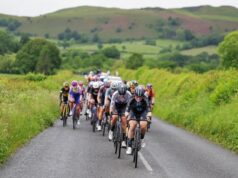I still chuckle when I think back to the UKRunChat Twitter banter before the Anglesey weekend (See the write up of it here www.ukrunchat.co.uk/ask-the-doctor-with-dr-juliet-mcgrattan/). There was talk of team red and team blue cocktails and Runitos in place of Mojitos. We’re a sociable bunch and everyone likes to have fun. We’re heading into party season now so with my Dr hat on I wanted to give you the low down on the risks of mixing partying with running. Here are some of the questions I’ve been asked and here are my honest answers. I’m not trying to be a party pooper, it’s up to you to make your choices but here’s some food for thought. I’d love to read your comments either here, on Facebook or Twitter so don’t be shy.
What are the safe limits for alcohol consumption?
The current recommendations are:
- Men should not regularly drink more than three to four units of alcohol a day.
- Women should not regularly drink more than two to three units of alcohol a day.
It’s also advisable to have some alcohol-free days in your week too to stop alcohol tolerance developing.
I get confused about what a unit of alcohol is, can you remind me?
One unit of alcohol is equivalent to 10mls or 8g of pure alcohol. It can be very confusing and it’s easy to underestimate the units you’re drinking. It is however better to keep count of the number of units you’ve consumed rather than the number of drinks.
- Wine
1 standard (175ml glass) = 2 units
1 large (250ml glass) = 3 units
- Beer, lager and cider
1 pint of low strength (4%) = 2 units
1 pint of high strength (5%) = 3 units
1 bottle (330ml) (5%) = 2.7 units
- Spirits
1 standard measure = 1 unit
Here’s a handy infographic from drinkaware.co.uk to show you what the safe daily levels are in drinks:
www.drinkaware.co.uk/check-the-facts/what-is-alcohol/what-is-an-alcohol-unit
Is it dangerous to run after drinking?
This depends on how much you’ve drunk. The biggest problem for runners is dehydration. Alcohol is a diuretic which means it makes you pee. One unit of alcohol makes you pee about 100mls of urine so 3 pints of lager or 3 glasses of wine might put you in negative fluid balance by 600mls. Running when you’re dehydrated will not only affect your performance but be potentially dangerous. If you haven’t passed much urine or it’s very dark in colour and therefore concentrated, it’s a good idea to hold off for a few hours and rehydrate yourself properly before you set off. Another indicator is your pulse rate. You can measure your lowest pulse or ‘resting heart rate’ by counting the number of beats per minute of your radial (wrist) pulse before you get out of bed in the morning. You might have noticed when you’ve been drinking that you can often feel your heart beating faster. This is largely due to dehydration. If you know what your normal resting pulse is then if you check it when you have a hangover you can get some idea as to how far you are from your normal cardiovascular state. Putting extra stress on an already strained system is never a good idea. Regular drinkers are also more likely to develop an irregular heart rhythm called atrial fibrillation which leads to an increased risk of stroke and requires monitoring and medication.
How much can I drink before it affects my performance?
How alcohol affects us is dependant upon a number of factors. Women break down alcohol more slowly than men, this is because women generally weigh less than men and have a higher percentage of body fat (fat doesn’t absorb alcohol). Women also have less alcohol dehydrogenase enzyme which breaks down alcohol so even if a woman weighs more than a man, alcohol can affect her more. Our rate of alcohol breakdown can also be affected by our age (older people break it down more slowly), our individual metabolism, the type of drink we’ve had and whether or not we’ve eaten any food. How we feel the next day is a very individual thing. Hangovers tend to worsen as we get older; we take longer to recover.
Can I run off a hangover?
It takes roughly an hour for your body to break down one unit of alcohol. This process happens in your liver and you can’t speed it up by ‘sweating alcohol out’. There’s no doubt that sometimes a bit of gentle exercise can make you feel better as the boost of endorphins can lighten your mood and the fresh air can clear your head.
Is a night of party food going to make any difference to how I run?
Eating something will actually help as alcohol is absorbed through your stomach and into your blood stream more slowly when food is present. Blood sugar levels tend to be lower when alcohol is in your system and hypoglycaemia (low blood sugar levels) can pose a dangerous threat if you drink to excess and don’t eat. You might still have low blood sugar levels the next day if your body is still trying to clear alcohol so that’s why it’s important not to run on an empty stomach and take a snack or sports drink with you. If you’ve got a sensitive gut then the addition of rich party foods won’t help your digestion and you might be heading for bloating and the runner’s trots which can be miserable.
How little sleep can I have and safely train?
We’ve all had very little sleep the night before a big race due to nerves so we know that a short term lack of sleep probably won’t make that much difference. Alcohol interferes with sleep too affecting the deep restorative part of our sleep. We tend to wake frequently because of this or because our bladder is calling! So, even though we might be spending more hours in bed over the party season our sleep is not of good quality and this can have a knock on effect on our training.
What can I do the night before to make the ‘morning after’ easier?
Eat something before you start drinking and preferably during and after too. Alcohol is less quickly absorbed if there’s food in your stomach. Drink non-alcoholic drinks in between your alcoholic ones to try to maintain your hydration. When you get in and before you go to sleep drink a large glass or two of water. I know people who swear by dropping a sports rehydration tablet into their pint of water. Have a drink by the bed to sip so you can drink again if you wake up in the night. In the morning rehydrate further with water or a sports drink. If you feel well enough to run then don’t set off until you’ve eaten something.
If I decide to run with a hangover is there anything I can do to make it safer?
Rehydrate as much as you can and eat before you go. This might mean delaying your run and changing your plans but a few hours can make all the difference. Take fluids and fuel with you. Don’t set off on a hard or long session. Go out with the intention of taking it easy. Start slowly and see how you feel. Be sensible, if you feel light headed, nauseated or weak then slow down, walk or stop. There’s always tomorrow…..unless there’s another party!
For more information have a look at https://www.drinkaware.co.uk
Don’t forget you can email me if you have a medical question or blog topic askthedr@ukrunchat.co.uk







